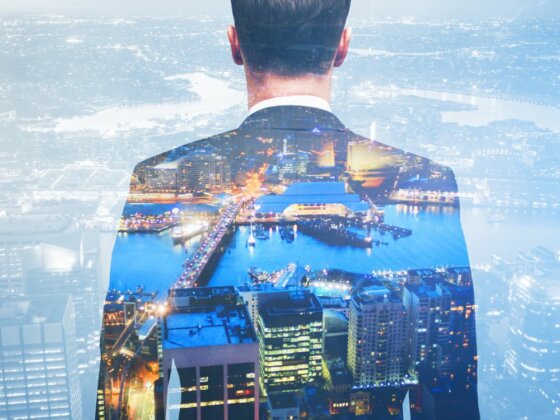It only takes a few hours by bus to move from the familiar Polish reality to the different realities of life in the Netherlands. Functioning in this country, although in many aspects it is similar to life in Poland, in others it is completely different. Going to work in the Netherlands? Check out how the life of Poles in the Netherlands looks like!
Cycling life in the Netherlands
Public transportation in the Netherlands is very extensive – you can get around almost all over the country on trains and buses without any problems. Many Dutch people also own cars, with which they travel on good quality national roads and highways. Despite such a well-thought-out road infrastructure, the most popular and readily used means of transportation is the bicycle.
Biking through the Netherlands
In the Netherlands, bicycle lanes are standard even in small towns. There, almost everyone rides a bicycle – children and adults, the elderly and the young, rank and file Employees and those working at higher levels. Riding a bike is financially attractive – it lowers the cost of living, as you don’t have to spend money on fuel for your car; it also helps you stay in good condition, and it fits in with ecological trends. It’s easier to get to the city center by bike than by car, and not having a car allows you to bypass the high taxes you have to pay for owning this form of transportation.
The employment agency will provide you with a bicycle for free!
The READY STEADY GO agency provides its Employees with bicycles free of charge, which you can use not only for commuting to work, but also in your free time. Before using it, check that the bike is in working order and that you have received a key for it. In case of a malfunction, report it to your caretaker.
Traffic rules in the Netherlands
Whether you’re driving all over the Netherlands or just around your workplace, you need to be careful to drive according to the traffic rules. Pay special attention to the speed limits – there are radars set up in many places, so going over the limit can quickly end with you receiving a penalty for breaking the law.
Traffic tickets
You will have to cover your fines with your own money – the labor agency will not pay for you even if you were driving a company car. You can get a ticket not only for speeding, but also for riding a bicycle with headphones on or lack of lighting. For these offenses there are very high fines, which will significantly reduce the amount of your salary shown on the salaris.
Parking meters
If you are traveling in the Netherlands by car, you will certainly use parking meters. As in Poland, you can pay for parking in the Netherlands by cash or card, the only difference is that it must be a Dutch card.
Problems while shopping
Going to the Netherlands for work means that you will spend several weeks, months or even years there. You will have to shop locally, whether for groceries, clothing or industrial goods. As we wrote in the article Summer work in the Netherlands – how to prepare for it? in order to get paid, and as a result, to be able to shop locally, you will need a currency account in euros. You can set it up even before you leave, in a Polish bank.
However, it happens that in some stores terminals do not accept payment with a Polish card, so it is good to carry cash. Once you gain experience where there have been problems with card payment, you can avoid these stores during your next shopping trip.
Property rental costs
Staying in the Netherlands also involves finding accommodation. Buying an apartment is uneconomical if you plan to stay there for a short time, so a better solution is to rent it. However, even here you may encounter a considerable problem.
Polish reality
If you’ve ever rented an apartment in Poland then you know that it’s not much trouble. The choice of apartments is quite large, especially in big cities, which are student centers. The only obstacle to renting an apartment may be the rent – as its amount is set individually by the owner. It is also necessary to pay a deposit, which is returned by the owner at the end of the lease.
How to find an apartment in the Netherlands?
Renting an apartment in the Netherlands is a problem not only for economic immigrants, but also for permanent residents of the Netherlands. There is a very high population there, and the supply of apartments, both for purchase and for rent, is low. It is very difficult to rent an apartment from a private person, so if you want to look for accommodation on your own, you must be patient and have a high amount of cash. Along with the first rent, which amounts to several hundred euros a month, you also must pay a deposit. You can read more about this in the article How to rent a private apartment in the Netherlands.
Accommodations organized by the employment agency
Due to the problems of accommodation, many Employees who are going to work through our agency, choose to use the staff accommodation we offer. Although it won’t always be an apartment or room directly close to the job location, you will certainly be provided with comfortable and fully equipped housing, as well as a bicycle or company car that you can easily use to get to work. So, you don’t have to worry not only about the apartment, but also about its equipment.
How to make sure you don’t get lost?
In Poland, each house is different, and orientation in the area does not cause too many problems. In the Netherlands it looks completely different. There, houses are very similar to each other. There are even regulations that specify what houses can look like, or what color they can be painted! If, in addition, you have poor directions, you should not move from home without navigation at first. We wrote about useful apps for your phone in the article What should I take on a trip to work abroad?. Many people decide to install them and use them regularly.
It is a good idea to write down the address of your accommodation and place of work not only on your phone or navigation, but also on a piece of paper. This one will come in handy if your phone gets discharged.
A może chcesz poznać realia pracy w Holandii
bezpośrednio od pracowników?
What is the life like for Poles in the Netherlands in terms of health and medical care?
If you are a person who takes medicines on a regular basis, or you often reach for, for example, painkillers, you may face an unpleasant surprise in the Netherlands. The Dutch focus on prevention and a healthy lifestyle, so doctors are not very keen on prescribing strong drugs or antibiotics. They try to cure most conditions with paracetamol and recommend a healthy diet and plenty of exercise.
Take the necessary medications with you?
In Poland, things look a little different. At the doctor’s office, you can get a prescription almost on demand, while the availability of non-prescription drugs in pharmacies is very high. So, before you leave, it’s worth stocking up on a few essentials, such as painkillers and anti-inflammatory pills, bruise ointment, or pharmaceuticals for any digestive problems – heartburn, bloating, vomiting or diarrhea.
Health care
However, you don’t have to worry about your medical care. While working in the Netherlands, you are required to pay for Dutch insurance. The employment agency will take the fee from your salary and pay it to the insurance company instead of you. This will allow you to get medical advice whenever you need it and ask for sick leave at work.
A Social Support Team Worker from our agency will take care of arranging a doctor’s appointment and transportation to the health center. You will be provided with translation assistance when you talk to a specialist or other support if you need it.
Polish reality vs. Dutch reality
Life in the Netherlands, as in Poland, has its lights and shadows. When going to work abroad, you have to set yourself up for changes in your life. The sooner you adapt to them, the better off you will be working and living in this country.


